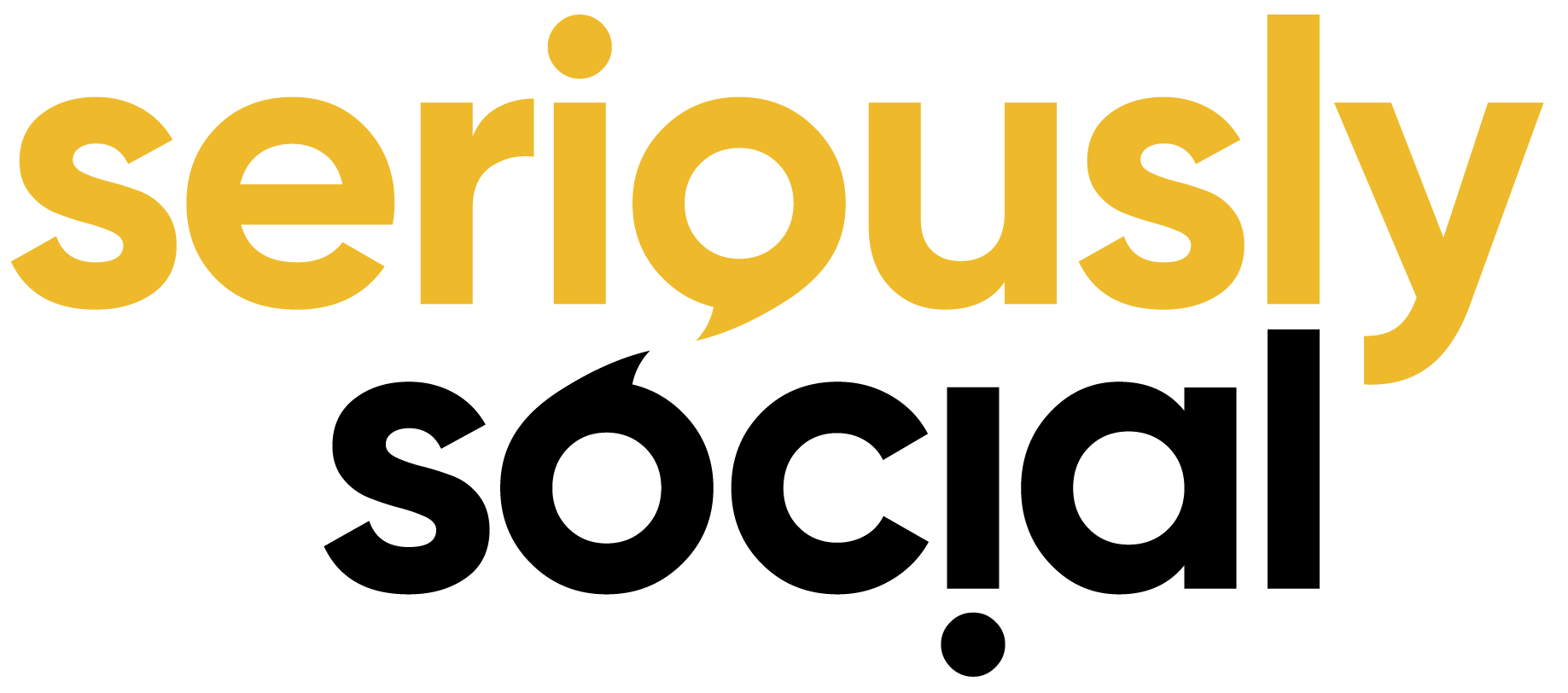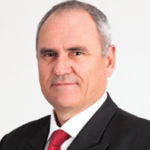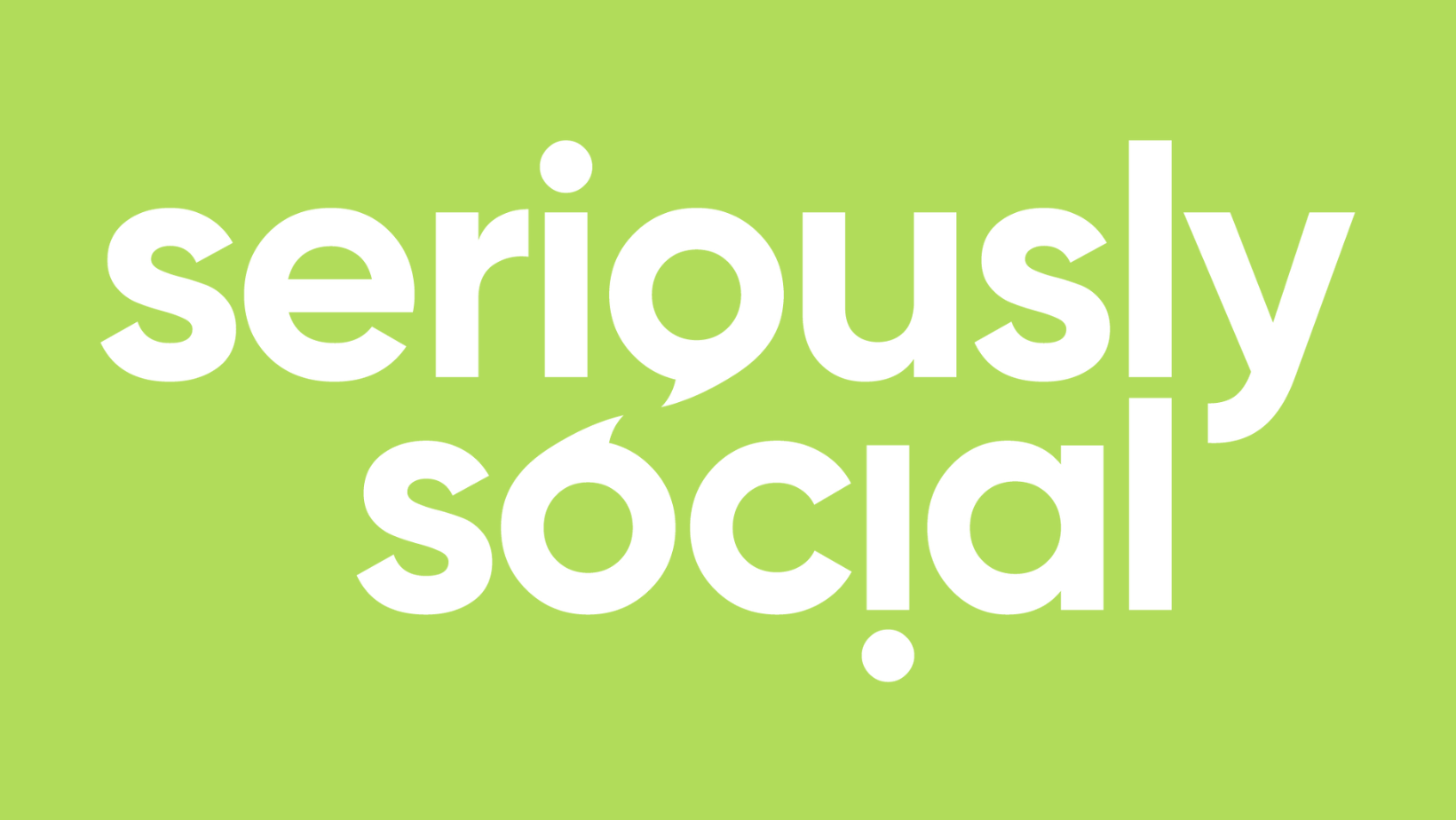Episode Notes
Ever cut your own hair then speed dialled your hairdresser for a fix? Regretted a spot of DIY? If so, you’ll have a new respect for experts. But now that everyone has a platform, which voices can we trust to keep us informed? Or are we happier just listening to anyone willing to tell us what we want to hear? Australia’s Chief Scientist Cathy Foley, and Ken Henry (a familiar name to many) join us in this episode of Seriously Social where we sort the experts from the commentators and help you understand the difference.
GINGER GORMAN: You know how people get trade qualifications to become plumbers, and builders. Why do we think we can just DIY that stuff?
Voice one: My wife loves the home improvement shows. You know the ones with the perky Americans, where they come in and hit a wall with a hammer and the guys take them away, drag them out of the house and then bring the actual builders in who do building work for eight months and then they come back and they go ‘Oh, now your house is finished!’? Those shows. So, she’s constantly saying to me, ‘Oh, you could do that’. And I think ‘Ohhh, god’. Cause I am not DIY inclined. I don’t speak (inaudible). I try, I have a go but it usually ends horribly.
GINGER GORMAN: Hairdressers are highly trained but I bet during lockdown a few of us decided to give that a go too…
Voice two: As I went to cut my hair, it was all going pretty smoothly. I oiled up the clippers, and I started to run them through my hair and it made this sound that sort of went ‘clunk’ as it started gripping my hair. My hair was too thick and I couldn’t move the clippers through. And so, I had to quickly chuck on a cap and run down to the local shops to the barber there and ask them to fix up my hair.
GINGER GORMAN: And it’s not just the hair on our head that’s best left in the hands of an expert…
Voice three: So I bought a home wax kit, popped it in the microwave for 30 seconds, no more, no less and then sat on the floor of the bedroom and attempted to use those linen strips. Needless to say, I became entangled with the carpet, with the towel, with the linen strips, wax everywhere. Not so much that it was hot and burnt me, it just got tangled up in every part of my body.
GINGER GORMAN: (laugh) Ok so those examples are embarrassing, even disheartening… but have you ever tried to summon the expertise of say a trained doctor?
Voice four: I couldn’t sleep all night because I had this sore finger. And, over the course of the night it became more and more painful, and it was throbbing and swollen and hot. And eventually I got up and went into the kitchen and took a look at it. And it looked pretty bad, but I figured it was swollen because there was too much of something inside it. Like to much blood, or pus or something.
GINGER GORMAN: Ohhh, do I need to give a content warning here?
Voice four: So, I got a steak knife…
GINGER GORMAN: Nooo…
Voice four: And, I made it as far as kind of pushing the tip against the skin…
GINGER GORMAN: Nope, nope, no!
Voice four: Before part of my brain kicked in and then went ‘You know what? If this is serious enough that you’re considering lancing yourself like a medieval surgeon, it’s probably serious enough for a trip to the ER.’
GINGER GORMAN: Oh, thank God!
Voice four: So, I jumped in the car and drove to the emergency room which was full of, um, sick people. So, there was a woman who hadn’t slept for three days due to migraines. There was an old man who looked like he might not live through the night. There was a sick kid, and obviously sick kids have to go first, so I felt pretty silly saying to the triage nurse, ‘Excuse me? My fingers hurts!’. My name was called out, so a doctor invited me in and she took one look at my finger and her face went very, very serious. And she said ‘OK, I think we’ll be able to save your fingernail, but this is an unusual medical emergency, so if you don’t mind I’m just going to invite in a bunch of med students to watch the procedure.’
And the procedure was her lancing my swollen finger with a scalpel.
GINGER GORMAN: Geez! Well it’s just as well he left that one to the experts then, don’t you reckon?
Voice four: Having said that, she did basically what I had been going to do, but with a scalpel instead of a steak knife. So, maybe I would have been OK? Who knows?
GINGER GORMAN: These days everyone’s an expert. Thanks to the internet, we can learn pretty much anything from how to regrout a shower, to how to interpret population health data in a pandemic. There is no shortage of information and no shortage of people willing to put up their hand and share their expert opinion however sticky the topic.
But, who is feeding us this information? And how can we be sure of their expertise?
Dr Cathy Foley: It’s hard to tell on face value, because someone sounds credible, you get caught up with charismatic individuals, we all do. That’s human nature.
GINGER GORMAN: Cathy Foley is Australia’s chief scientist.
Dr Cathy Foley: One of the things is actually going through and doing a bit of homework. A really easy way is to look at where they’ve done their university degree. And what was the degree in? How much research have they done in that area, that has been published in peer review. And you might say, oh, as a journalist, or as someone in the general public, “I’m not in a position to find that out”. You can. Google Scholar, for example, allows you to type the person’s name in and you’ll be able to see their publication list. And then you can actually go through and see whether they’re an expert in the particular area they they’re talking to you about, or whether they’re talking to something adjacent or something quite different altogether. So there is a difference between commentating and being an expert advisor.
GINGER GORMAN: This is Seriously Social, I’m GINGER GORMAN, and that sounds like a lot of work for someone who just wants to find a trusted voice to keep them informed.
On the podcast today, how did we get here… now that everyone has a platform, have we forgotten how to tell the difference between experts and commentators?
Or are we happier just listening to anyone willing tell us what we want to hear?
GINGER GORMAN: Cathy Foley’s job as the Chief Scientist is to provide detailed scientific advice to the government. But Cathy is a physicist. Her Wikipedia page says she made significant contributions for the comprehension of superconducting materials … which does sound baffling to the lay person!
So how does she provide advice on topics like population health or climate science?
Dr CATHY FOLEY: Every society needs to have people who know a lot about small areas, so that we can draw on the expertise to make good decisions for the greater good of the whole of society. And no-one can know everything, so my job is to make sure that I know where the experts are and that I can draw on them, and the narrow bit of information that they can contribute. And that’s quite different to the idea of bringing all that information together and turning it into something that is useful.
GINGER GORMAN: The big question of course is around whether or not people receiving advice from Cathy’s experts are willing to hear it and more importantly to act on it, but I’ll come back to that.
One problem is our expectations… we’re always on the lookout for those eureka moments, the breakthrough research, but knowledge isn’t really developed that way.
DR CATHY FOLEY: Often we think about research, when we publish a paper, that somehow or other that one research article, or one research project is going to make a massive difference. It might create a new and deeper understanding but that’s based on either a whole lot of previous work that went before, or it kicks off a whole lot of new extra work to really bed it down. So science isn’t just one person, we often think, you know, like Einstein came up with great ideas such as gravitational waves, but it took us 100 years and lots of science and development to show that that actually was a correct idea. And that we were able to go through all the theory, or the experiments, or the development of incredible scientific equipment to be able to show that was the case. So that’s one extreme example. But anything from developing a new drug through to a new material, or even understanding some aspects of history, or looking at the ways the social sciences work; it’s a building up of different aspects that come together. And it’s almost like there’s a gradient of knowledge – you know when you’ve got things, you might have a river going in a particular direction. In there will be bits pointing in other, other ways but overall it’s going in the same direction, and that’s what you see researchers having. But if you pick out one little bit, you’ll find that it might be pointing in a little bit the wrong direction, specifically, but in the right overall direction. And that’s what we’ve got to get this idea that experts will be very good at their little bit of their arrow. And sometimes their little piece of direction might – in the bigger picture of things not be exactly aligned – but overall it is.
GINGER GORMAN: Do you think perhaps sometimes experts have not been good at articulating not just their worth, but the way that they work, this idea that you’re conveying about the body of information as opposed to the individual academic paper they might have published.
DR CATHY FOLEY: I think it’s really hard for individual scientists to often see how they fit in the bigger picture, because we set up our rewards and recognition on the individual contribution. And, and when we look at the big awards, such as Prime Minister’s science prize, or Nobel prizes, things like that. You will see that it’s a reward for how that fits into the bigger picture. But at the individual career pathway, or new job, or something where your research application for funding requires you to be very specific about how your bit of work makes that difference. And I think sometimes it gets lost. It’s an area where I think as a researcher, you grow with that as you mature. So, I know as an early career researcher I never thought about that. It’s something which I’ve actually learnt as I’ve gone and matured through my career.
GINGER GORMAN: What role do you think the media plays here? Because I know I’ve certainly done this as a journalist, you know, reported on the individual findings of a very tight small paper, whereas in fact, I’m not at all looking at the broader picture.
DR CATHY FOLEY: It is tricky because on one level, we want to celebrate the fantastic work that researchers do. Each of those little pieces of the puzzle build together to create a really important understanding of our world. And it doesn’t matter whether it’s in social sciences, in humanities, or in, you know, maths, technology, engineering; they all sort of have their place and their part to play. But I think the thing that is tricky is, from a media perspective, is getting that balance between “this is something which is really exciting”, and then also being in a position to be able to create the context. And in fact, when a researcher is writing a really good paper, they always start with a really good context setting. And maybe one of the things as experts, we need to be better at helping journalists and the media actually understand and provide that context show where the bigger picture comes in, and where our piece of the puzzle fits. And maybe that’s something which we need to do in working more with, instead of just being a instant expert for a particular thing, make sure we give that briefing background, provide information to show how that comes together. Because like you as someone working in media, you can’t know everything. I can’t know everything. And so we do rely on experts to help us give that context.
GINGER GORMAN: Is there a gender issue, they’re a little bit sometimes because we know that overall, male scholars publish more than female scholars, due to a variety of reasons. But it can lead people to believe that men in the field are more expert than women in the field sometimes.
DR CATHY FOLEY: I think that goes back to that whole gender issue in general of how we rank women and men. So, if you look at gender, some research has been done. And it’s still evolving, but you look at women to get the same competency ranking, have to have something like two and a half times more capability or research outputs to get the same ranking as a male. And then, you know, Jill versus Jack CVs. Men and women rank them for employment purposes and constantly there’s something like a 10, or 20, or 30% variation in their quality rankings, on things like competency, the ability to do the job, you know, those sorts of things. So it’s deeply embedded in us as humans at the moment and it’s that unconscious bias drives us to think: “male expert, I can trust them”, “female expert, I’m not sure”. That’s something which as a society we have to work on. And I know we are working on it, but boy, is it hard to break through.
GINGER GORMAN: Another problem is one I’ve already raised here – anyone can get themself a platform and call themself an expert.
DR CATHY FOLEY: We’re seeing an imbalance coming about because social media has meant that we’ve been able to get the same voice and volume from people who may not have exactly the same level of expertise but have lots of confidence. And they’re getting the same sort of, I guess, traction or visibility. And that’s creating confusion. I think that’s where we’ve got to sort of make those corrections, is to see how we can encourage experts to explain why they are experts, and where they’re being an expert and where they’re being a commentator.
And then those who are really just commentators, and possibly being mistaken as experts, they’re the ones that are creating that confusion.
GINGER GORMAN: Ken Henry agrees. He was the Secretary to the Treasury for ten years and he’s a Fellow of the Academy of the Social Sciences in Australia.
DR KEN HENRY: There’s the world of difference between the uninformed opinion of an expert and expert opinion. Like, everybody’s got opinions, and that’s fine. And I’m not suggesting that opinion should be censored, but it should be seen as nothing more than uninformed opinion most of the time.
GINGER GORMAN: As a departmental head advising three governments from Howard to Gillard, Ken Henry saw Australia’s economy through the best of times with the mining boom, and the worst of times with the Global Financial Crisis.
In 2010 he released a major tax review, which called for, among other things, a Resource Super Profits Tax.
This was a proposed tax on the surplus profits of mining companies, and while you might assume that most people want to see higher taxes for the very rich, mining companies got the conservative media on side and then won the public’s sympathy.
Within weeks of announcing the policy, Prime Minister Kevin Rudd was deposed, the new Prime Minister Julia Gillard replaced the policy with the much less toothy Minerals Resources Rent Tax.
More than a decade on from that experience, what does Ken think about society’s need for genuine experts?
DR KEN HENRY: Without experts, democracy simply doesn’t work. Firstly, in a representative democracy, like ours, think about our elections. Our elections are essentially local popularity pageants. That’s what they are. There’s no capacity in an election campaign for all of the issues that concern us as citizens to be fully explored.
Nor is it realistic for us to expect that the person that we elect to parliament is going to be expert in all of the things that matter to us; maybe not even in any of the things that matter to us.
And so there’s a presumption underlying representative democracy, that once people are elected to that office, they will act on the advice of people who actually know what they’re talking about.
That’s why it’s so important, by the way, that we have a well-resourced apolitical public service, and also a well-resourced Academy.
GINGER GORMAN: We don’t talk too actively about the Academy of the Social Sciences in Australia here, but it is really important – and not just because it supports this podcast.
The Academy is an elected body of more than 700 leading researchers and professionals across the social sciences disciplines – including Ken Henry. They’re experts from fields as diverse as economics, education, linguistics and law.
It’s one of five learned academies across Australia – there are others for science, humanities, technology and engineering, health and medical sciences.
Even though as a member of the public you might not know much about this not-for-profit organisation, you’ll certainly have been impacted by the work of its Fellows – their research shapes government policy, their advice is called on by Australia’s leaders, and their knowledge has played a key role in shaping our nation.
DR KEN HENRY: So that’s the first reason. Second, it’s obviously the case that challenges are managed best if they’re anticipated early. And obviously, anybody can stumble upon a crisis. Our politicians are stumbling on a crisis every day. But it takes an expert to identify a problem before it becomes a crisis.
GINGER GORMAN: in your view, Ken, how and why did the experts start coming under attack in public discourse?
DR KEN HENRY: Well, ironically, I think it’s because the presumption upon which democracy is constructed, that is that our elected officials will take the advice of experts, that presumption is also an Achilles heel. It’s a paradox that very few political leaders anywhere in the world want to provide what I would call true leadership. Certainly, all of them want to be at the centre of attention. All of them, in my experience, crave popularity. But few want to heed the advice of experts and deal proactively with future challenges. And the reason for that is simple enough that runs the risk of unsettling people and losing popularity. And it’s, um, safer to retreat to gratuitous commentary or something worse, which is populism.
GINGER GORMAN: We used to be much better at putting our faith in experts. It’s one of the reasons why Australia has managed to punch above its weight on a global stage, or at least it used to.
DR KEN HENRY: By the early 2000s, Australia had established an enviable global reputation for best practice policy. By the turn of the century, we were being described by noted commentators in the United States and elsewhere as the miracle economy. Australia had avoided any negative shock from the Asian financial crisis of 1997/98. We avoided any shock from the US based tech wreck of 1999 through to 2000. And actually, it was this reputation for policy excellence that underrated Australia’s ability punch above its weight in multilateral forums.
GINGER GORMAN: But policy back and forth on issues like the emissions trading scheme changed our reputation. Heads rolled, and the policy was scrapped by Australian politicians.
DR KEN HENRY: And as Australian populists were wreaking havoc in Canberra, the world watched in horror. So now, nobody looks to Australia to see how things should be done. Can you just imagine the Australian Prime Minister today, ringing the President of the United States to seek support for an urgent meeting of the G20 to discuss global action on climate change, the COVID pandemic or any other matter of global significance? Of course, you can’t. And yet, 12-13 years ago it happened.
GINGER GORMAN: So does that mean that the government is too busy chasing its tail to look ahead?
DR KEN HENRY: Problems that are dismissed by populist politicians, they don’t go away. So for example, very few Australians now question the science on climate change. The Australian population is well out in front of where the Australian Government is on this issue. Almost all Australians have first-hand experience of drought, bushfires, floods, have seen wildlife in distress. They see the connections; they understand the connections and there’s a whole range of issues. We don’t see those problems as contrived by ivory tower theorists; we see those problems as being real. And if the populace arrived, if they’re so easy to fix, then why haven’t they been fixed? And could it be that our politicians are the real problem?
GINGER GORMAN: So, if we go into the broader question, then what happens when we don’t heed the advice of experts and especially in relation to the examples you’re giving of our leaders, our politicians?
DR KEN HENRY: Unfortunately, when the experts are ignored, ultimately, democracy fails to deliver. It’s really that simple, and it’s that serious.
Eventually, with democracy, failing to deliver what the citizens expect of it, they lose confidence in all of the institutions of democratic governance. And unless we turn this around, citizens are going to become increasingly disillusioned with the political process, with engagement with politics and policymaking. Some have already decided that they should, and will disengage, and they’ve sought to take power away from the traditional institutions of governance. We’ve seen, courtesy of social media mainly, citizens all over the world clustering in tribes. Many of these tribes, unfortunately, belief based they’re not based in reason or science, they’re purely belief based. But other citizens have begun to take national and even, in some cases, global leadership into their own hands, eschewing the instruments of democracy.
Individualism is to be celebrated, of course, and it’s great when people take the initiative, to innovate and to find new ways of doing things. And you can understand people who are, or feel frustrated by the democratic process, you can understand them wanting to take matters into their own hands. But there have to be rules. The functioning of democracy rests on these rules being observed and being observed by all, and it would be an absolute tragedy if the failure of our politicians to deliver to citizens, what citizens expect through democracy, if that led to the undermining of democracy itself.
GINGER GORMAN: And not just in one country. We’re seeing the weakening of democracies all over the globe.
DR KEN HENRY: Yep.
GINGER GORMAN: We will always need experts, but perhaps we don’t realise that until there is a crisis. Here’s Cathy Foley again:
DR CATHY FOLEY: If it’s one positive that’s come from COVID, that is that there’s been almost like this world experiment where in the past, if we’ve given advice, it’s often seemed to take many years before that comes into a point where it can be checked against the advice.
What we’ve seen with COVID is that we’ve had, you know, two week or month turnaround, so that our experts have been able to come along and say if you do this, this will be the outcome. And within a very short space of time, we’ve seen that if they follow the expert’s advice, and Australia has done that marvellously, we have seen fabulous outcomes.
What I think has been fantastic is government in the past has seen the value of experts looking at what’s happened in the past, and what’s happened in predicting the future – as in horizon scanning. But the whole pandemic has actually provided government with evidence for themselves to see that by getting experts in for the now, for the information that is now, they can then put that into policy. And they’ve been able to test that with that rapid turnaround, so that I think that has lifted the recognition of what are the wonderful investment of world class research we have in Australia has to offer for government and policy settings.
GINGER GORMAN: One of the almost insurmountable challenges for experts during a crisis like the Covid-19 Pandemic, is that the public starts to lose faith in them when the information they dole out keeps changing.
DR CATHY FOLEY: That’s because we don’t know what we don’t know until we discover it. And so as and this happens in all science, you’re constantly improving, as we understand things better. We change our models as we are able to develop them with better parameters, identifying which are the boundaries that we’re going to work within when we are creating our models.
And then also just computer power, our ability to use different variables, and also understanding what are the things that are important and the prioritisation of those important parameters that make a difference or characteristics we have to model for. And that is something evolves and is emergent, and it’s not like it’s black and white.
So just because three months ago, there was a model that said something doesn’t mean in three months’ time that we won’t know more because things are developing at such a rate that we need to recognise that the information is changing. And that’s sometimes it’s hard for the general public to not recognize – they might think that “something was wrong and now it’s right.” When in actual fact, it’s just we’re learning and we’re knowing more.
GINGER GORMAN: Ken Henry wonders whether the public thirst for solid, trustworthy expertise will impact the way that politicians view experts.
DR KEN HENRY: What worries me is that in a crisis, the politician who occupies the centre of attention has to do something. The can can’t be kicked any further down the road, right? But doing anything is risky. And how does the politician minimise the risk? Well, I hope I’m wrong. But I suspect that in some cases, the motivation is to use the expert as a shield, or as a lightning rod for the disaffected, in the worst case, somebody just like to blame when something goes wrong. And what we need to see is our political leaders getting comfortable with experts at all times, not only in times of crisis.
I think the politicians trust the experts. That’s never been an issue. What’s really been an issue or whether the politicians are prepared to act on the advice of the experts, other than in a time of crisis.
GINGER GORMAN: Cathy Foley has a more optimistic view on the matter of governments turning to experts for advice.
DR CATHY FOLEY: One of the things which I think I’ve been so lucky to become Australia’s Chief Scientist at this point of time, is that government has recognised the importance of experts and information for their policy development. For example, if you’re developing policy, you would never think of not consulting with economists. Now we’re getting the recognition that they also need to consult with science and technology. And that, for me is fantastic. So, when I came into this role, I was given a letter of expectation, and end of the first paragraph was, want you to help to make science at the heart of all policy development. So, this is something which I think is exciting. It’s a recognition that science technology, but research in general, because it’s not just science on its own, it’s the wraparound of the social sciences, the arts and humanities, that come together to really have impact – that is now being recognised as being absolutely critical for government to be able to deliver prosperity, make good decisions, and make sure we’re future proof, because you know, the world is changing, geopolitics is changing, technologies are changing. And I am seeing and being asked for particularly if you’re our National Science and Technology Council to have a portal into the research community, so that government knows where to go to get that expert advice.
GINGER GORMAN: This is Seriously Social I’m Ginger Gorman. If you’re enjoying the podcast, there are plenty of back episodes on offer.
And remember, one of the best ways to support us is to subscribe – that helps us in so many ways, so like or follow away; we really appreciate it.
Seriously Social is produced by Kim Lester, engineered by Mark Gageldonk aka Baldey and executive produced by Sue White and Bonnie Johnson. It’s an initiative of the Academy of the Social Sciences in Australia.
Next time…
Incentives. Do they work? And where do you draw the line?
Useful Links
Australian Academy of the Humanities
Australian Academy of Technology and Engineering





